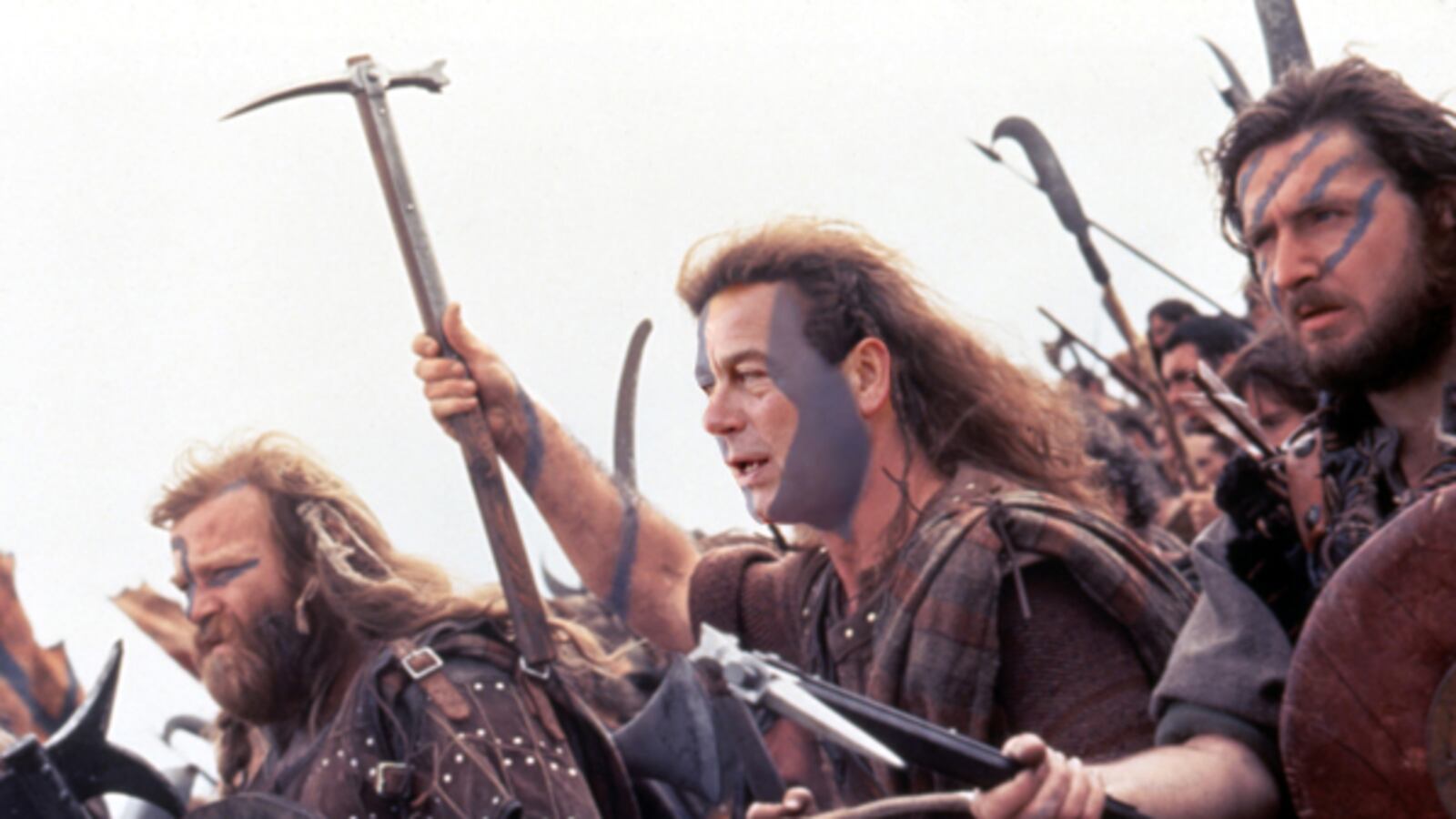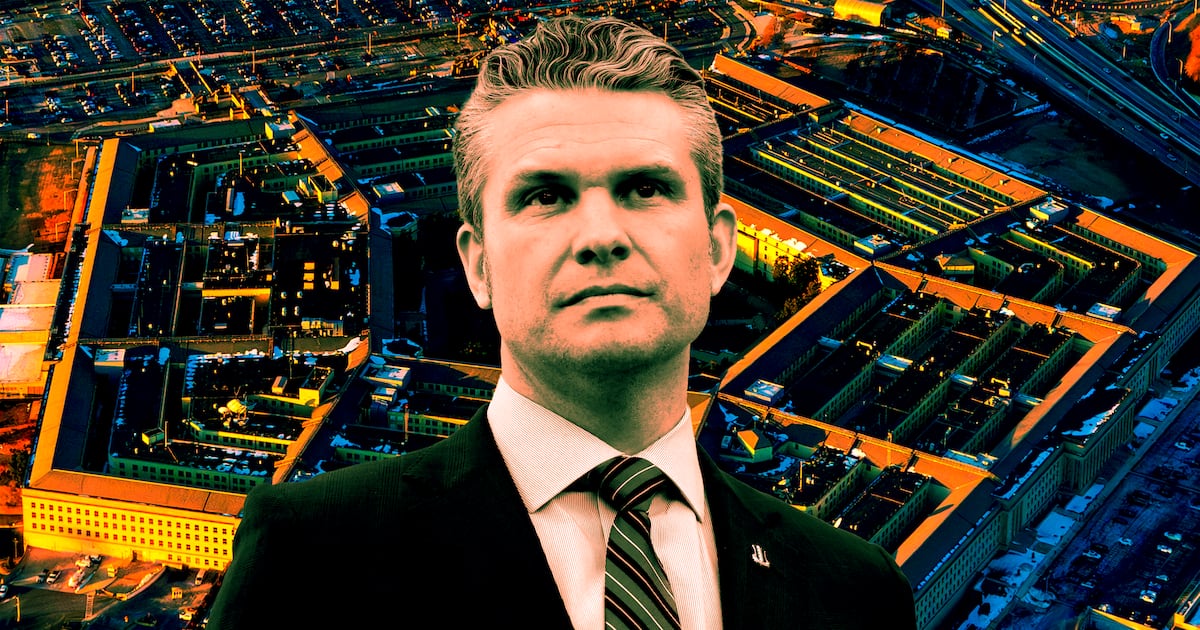Since Braveheart, Mel Gibson’s epic Oscar-winning 1995 reconstruction of the story of Sir William Wallace, is a monument to self-serving martyrdom laced with a pornographic enthusiasm for torture, you may appreciate why it appears to be the Republican Party’s favorite movie.
According to the The Washington Post, House Republicans have taken Braveheart as their inspiration for their opposition to any deal with either their opponents (Democrats) or their enemies (the Senate) on proposals to extend the payroll-tax holiday and unemployment benefits next year. At a two-hour caucus meeting, as many as 10 GOP members stood before their peers and talked about their favorite moments from Gibson’s bloated, brazenly ahistorical epic. I know, go figure. Such are the wages of democracy.
All this had an effect (though it is not known whether it reduced the famously lachrymose speaker to tears), ginning up Republican morale and sending them off to TV studios across Washington to preach the message that this is just the time for a questionable historical analogy of dubious relevance to the actual problems of contemporary Washington. So Georgia’s Phil Gingrey, a member of the Tea Party Caucus, told Fox News that, damn it, “This is a Braveheart moment. You, Mr. Speaker, are our William Wallace.”
But, really, for his own sake, Speaker John Boehner should avoid any and all attempts to cast him as Wallace, the Scottish leader whose role in the wars of independence in the late 13th and early 14th centuries made him a national hero. If his colleagues insist Boehner play Wallace, he should decline the invitation and demand instead to play the part of Robert the Bruce. This is not just because Bruce is a more interesting character (though he is) but because where Wallace lost, Bruce won.

I shall not weary readers with too lengthy an exposition of the intricacies of Anglo-Scottish power politics at the turn of the 14th century except to note that they were bloody enough but too complicated for a Mel Gibson movie. Memo to the GOP caucus, however: mooning your opponents and screeching “freedom” is not enough to guarantee victory.
Braveheart, mind you, went some way beyond celebrating Wallace’s resistance to English desires on Scotland. No one should watch this overboiled mess of a movie without noticing it might be 20 minutes shorter but for all the indulgent slow-motion clos-ups of Wallace/Gibson, each of them asking us to admire him almost as much as the film’s director does. Nor can one avoid observing that the camera adores the final scenes depicting Wallace’s torture and gruesome execution (he was hanged till nearly dead, eviscerated, and then beheaded and cut into four parts). “Freedom” he yells (yet again as if we have not already received this complicated message), and we are meant, I think, to admire and be humbled by the purity of his sacrifice, indeed his martyrdom. Ignore the defeat, feel the honor!
It is all simplistic tosh and poppycock of the direst kind. Wallace certainly enjoyed some notable victories against the English but by the time he was captured and executed another man had in any case taken up the cause: Robert the Bruce. Bruce was crowned King of Scots in 1306 (having first taken the precaution of murdering his chief rival for the throne; a crime which, since it was committed in a church, earned him papal disapproval and excommunication) and began a long and painful guerilla war against the occupying English.
Bruce was late to the fight. He had owned lands on either side of the Anglo-Scottish border and he would, in fact, switch sides several times before finally and irrevocably choosing Scotland. He was, if you like, a politician as well as a general. Like Wallace, Bruce was an underdog; unlike Wallace he won, proving himself a master of asymmetric warfare. For eight years he harried the English and their allies while denying them the set-piece battle they craved. The decisive battle eventually came at Bannockburn in 1314 (not far, in fact, from Stirling Bridge where Wallace won his famous victory in 1297) and Bruce’s crushing victory there paved the way for Scotland’s survival as an independent nation, a situation finally recognized by the English at the Treaty of Northampton in 1328.
Bruce and Wallace, then, are the twin heroes of the wars of independence. Without Wallace there might not have been a Bruce; without a Bruce, Wallace’s efforts would have been in vain and Scotland would have been lost. If forced to make a choice between them, the choice tends to be revealing: Wallace the martyr or Bruce the victor? It is not surprising that a man with Mel Gibson’s take on religion chooses the former; there’s no reason for House Republicans to think this the correct choice.
It is the difference between an instinctive idea and a calculated strategy—the difference between the purity of opposition for opposition’s sake and the compromises and occasional horrors that may be needed to get things done. In the early years of English aggression, Bruce cut an ambivalent figure, too plainly calculating where his own best interests lay. This is not the stuff of comic-book heroism, but it is politics. He was not trusted by all, but it was Bruce, not Wallace, who would prevail and actually secure what Wallace wanted. Once Bruce had decided which side he was on—and what tactics were required—no one could surpass his zeal. But it took him time to reach that point.
I trust that the political parallels—if any must be drawn—are clear enough? House Republicans sometimes appear to prefer the idea of unsullied martyrdom to bargained, compromised success. One is a reminder of the dirty realities of life and politics; the other a fanciful retreat to comfortable—and self-mythologizing—fancy.
In the present case, if you will forgive a mere Scotsman to observe this, since increasing payroll taxes must cost the average American family $1,000, it seems probable, since I gather 2012 is an election year, Republicans will find a way of escaping their present dead end. Doubtless they will win some prizes too when the compromise comes (as come it will), but for now I notice that the rock-knuckled conservatives at The Wall Street Journal’s editorial page are complaining that, “[W]e wonder if they might end up re-electing the president before the 2012 campaign even begins in earnest. The GOP leaders have somehow managed the remarkable feat of being blamed for opposing a one-year extension of a tax holiday that they are surely going to pass. This is no easy double play. Republicans have also achieved the small miracle of letting Mr. Obama position himself as an election-year tax cutter.”
Well, that’s what happens when you draw your inspiration from Mel Gibson, isn’t it? Braveheart is a movie for simpletons, not politicians and its evident popularity amongst House Republicans confirms the former while casting doubt on their pretensions to be the latter.






